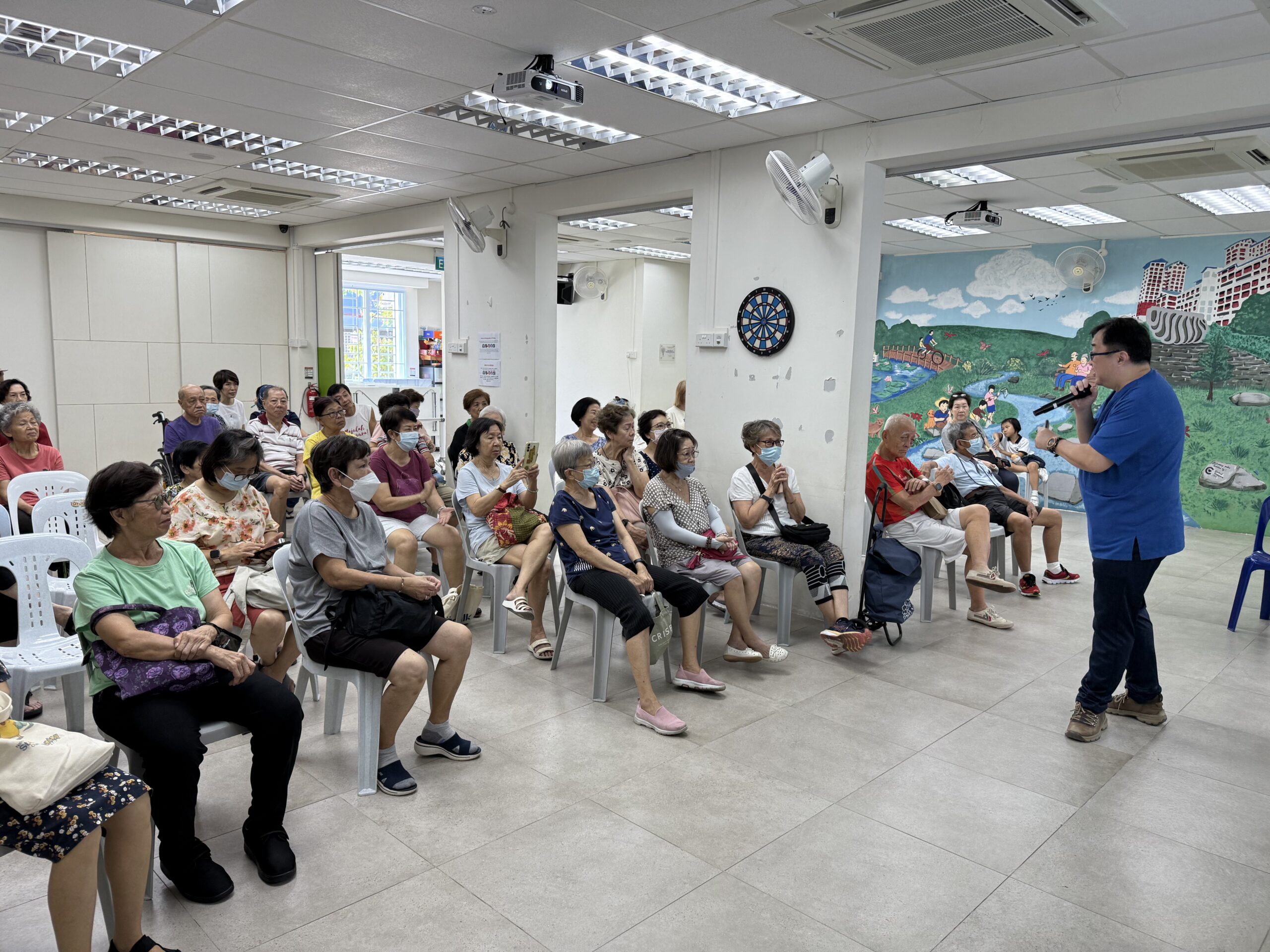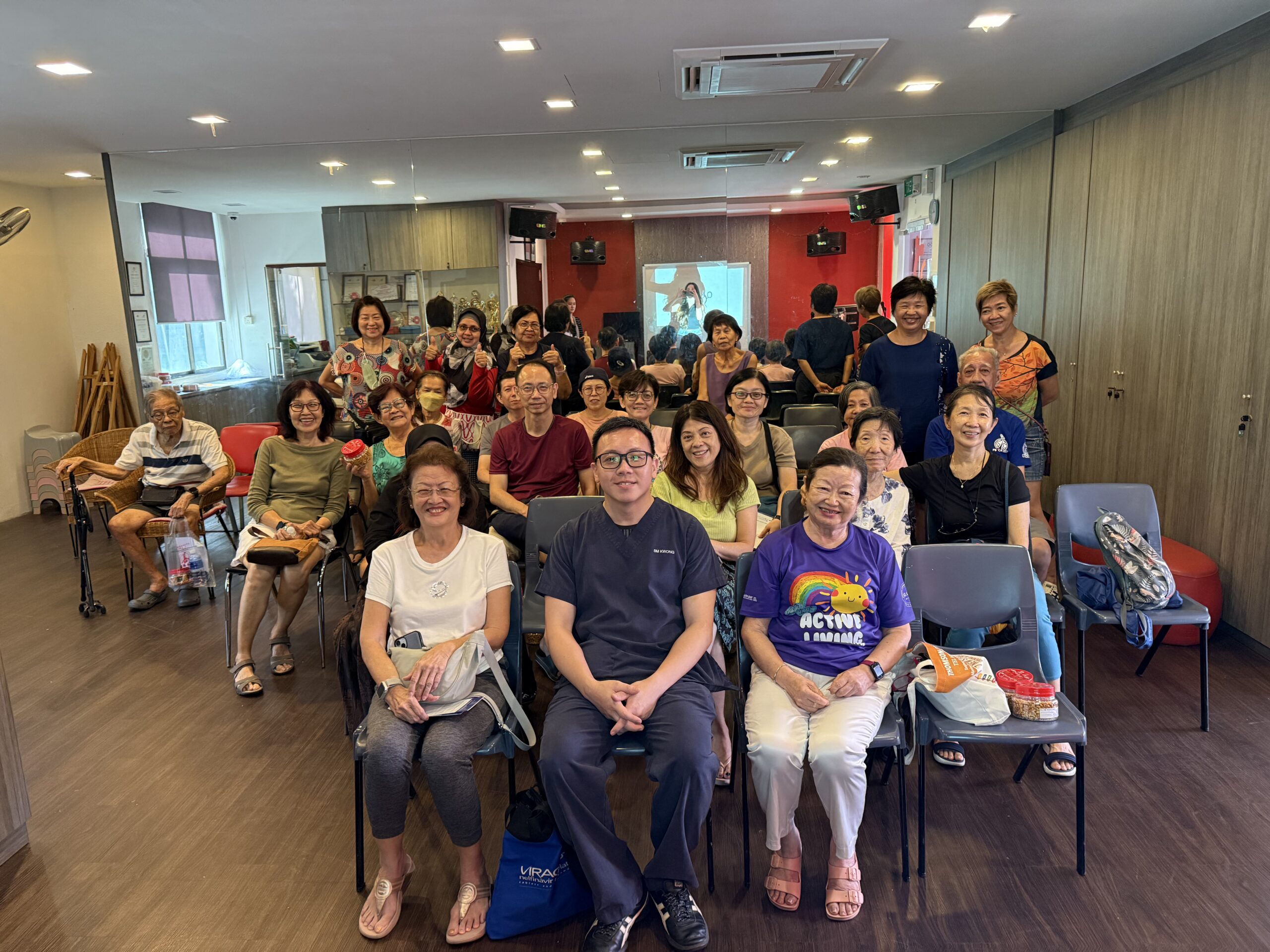
CONTENTS
Lasting Power of Attorney (LPA), Advanced Medical Directive (AMD) and the Advanced Care Planning (ACP). What in the world are those terms? They certainly didn’t teach them in medical school back then!
As a young doctor I had no clue. In the early 2000s, a good part of my early years working in hospital was spent totally ignorant of these provisions. It wasn’t taught, and knowing it didn’t make me a better junior blood-sucker (drawing blood) and paper pusher (administrative summaries). It also wasn’t just unfashionable to ask what plans for dying a patient had in hospital – it was a ticket to a complaint letter!
There was also a lack of good role models – we must remember that our current healthcare system is touted as great, not because of community care, but because of tertiary care in hospital, based on tackling complications rather than preventing complications. Hospital specialist leaders were almost “god” in the way patients revere them for their “life-prolonging” powers. I now prefer to see it as being very good at patching things up after the time bomb has gone off, rather than defusing it early.
The Need For Advanced Planning: Challenges Of Futile Medical Treatment
So more often than not (or almost always, in my own memory), night calls in hospitals were peppered with urgent resuscitations where a patient after surgery suddenly deteriorates, patients on chemo had stopped breathing or get breathless, etc. These happened every day. Very often I had to jump on another person’s grandparent to administer cardiopulmonary resuscitation (CPR – often breaking their ribs). The reality of these resuscitations are mostly futile, the few we save spend a long time in hospital due to other complications of resuscitation (such as cracked ribs, a bigger stroke, or heart attacks), or go on to succumb to them in days. The few selective ones who made it out alive mostly got discharged a few weeks later to a nursing home or confined to lying down in bed, unable to sit up even. I dread to think how long they survived lying down after discharge.
I look back and realize the duty nurse and I were very often the last people such patients spent their last moments with. Even in their last breath, it is common practice to draw the curtains and continue resuscitation while the family is around. Or their families would arrive later and it wasn’t hard to see the shock and grief on their faces, but as a young healthcare worker I probably tuned it out.
For the families of the patients who do survive such emergencies, there is an overwhelming sense to do everything for their loved one, and because they almost never talk to the patient about their last wishes, patients very commonly get all pumped with IV lines, flushed with drugs that support the heart and brain and spend a considerable amount of time in the ICU, whereupon most catch a drug resistant bug and die a few days later, or the family decides (after decimating their financial resources) to pull the plug.
Since 20 years ago, things have gladly improved and there are now a few processes in place for you to choose from to protect your legacy. The important thing is that it is not merely signing the forms that matter, but the difficult but necessary conversations that are to be had with your family to get to those decisions.
What is Lasting Power of Attorney (LPA), Advanced Medical Directive (AMD) and Advanced Care Planning (ACP)?
Lasting Power of Attorney (LPA)
Understanding LPA and Its Legal Significance
A Lasting Power of Attorney (LPA) is a legal document which allows a person who is at least 21 years of age (‘donor‘), to voluntarily appoint one or more persons (‘donee(s)‘), to make decisions and act on his behalf as his proxy decision maker if he should lose mental capacity one day. A donee(s) can be appointed to act in two broad areas: personal welfare as well as property & affairs matters.
Applying for LPA
The application for the Lasting Power of Attorney (LPA) can be accessed through the Office of the Public Guardian’s website at https://opg-eservice.msf.gov.sg/OPGO/Login.aspx. Certificate Issuers are limited to (a) medical practitioner accredited by the Public Guardian; (b) a practising lawyer; or (c) a registered psychiatrist.
LPA Applications: Certificate Issuers and Their Roles
While medical practitioner fees are lower, a lawyer will cost a lot more but can facilitate more detailed arrangements. Usually, doctors don’t just sign the LPA, but also a litany of assessment forms from Eldershield Claims, to Foreign Worker Domestic Levy, to Pioneer Generation Disability Assessment Scheme (PG-DAS) as these are all closely related forms when a condition turns for the worse.
Advanced Medical Directive (AMD)
Purpose and Applicability of AMD
An Advanced Medical Directive (AMD) is a legal document you sign in advance to inform your doctor that you do not want the use of any life-sustaining treatment to be used to prolong your life in the event you become terminally ill and unconscious and where death is imminent.
Signing the Legal Document for AMD
The form can be downloaded from the MOH website, and will require it to be signed in the doctor’s office in the presence of another witness who does not benefit from your passing. Any medical practitioner will be able to make an assessment and facilitate the process. Download Legal Document for AMD
LPA and ACP can be done as a bundle at DR+ Medical & Paincare East Coast Clinic: https://mylegacy.life.gov.sg/find-a-service/find-lpa-acp-bundled-provider/
Advanced Care Planning (ACP)
Embracing ACP: Planning for Future Health and Personal Care
Advanced Care Planning is the process of planning for your future health and personal care. Having ACP conversations with your loved ones allows you to:
- Share your personal values and beliefs
- Explore how your values and beliefs affect your healthcare preferences in difficult medical situations.
- Think about who among your loved ones can be your voice if you become very ill one day.
ACP is commonly initiated in hospitals and hospices, although there are community facilitators. It must be emphasised that it is a process. It is a lifelong journey that begins with having an open conversation with your loved ones. The decisions are fluid and no lawyers or fees are required.
Easing into Conversations: Approaching Difficult Topics with Loved Ones
It is well recognised that it is difficult to talk about such things to our loved ones. How I tend to ease into conversations is by this analogy: “We (family) are all sitting at a table having a banquet. Sometimes, it is a reality that we can’t all settle the bill and leave together. When I have to leave suddenly, I want to pay my fair share, and to make it clear I do not want to be a burden to those who I will leave behind at the dining table. It’s never good manners to leave the bill unsettled for others to trash out, so it’s probably best to sort out who pays what before you go. “
The three concepts of LPA, AMD and ACP may seem complete, but there can be possible issues with advanced planning. However, there are ways to plug them as best we can, which I will share in the next article.
DR+ Medical & Paincare East Coast
Led by Dr. Kwong Seh Meng, DR+ Medical & Paincare East Coast is a family clinic providing chronic disease and diabetes management, general paediatrics, men’s health, musculoskeletal pain and sports medicine, weight management, health screenings, statutory medical/ maid examinations, minor surgical procedures (lumps, bumps, warts), anonymous HIV testing and STD treatment, point of care ultrasound (POCUS) and home care/ palliative care services.
Address: 146 East Coast Road, Singapore 428835
Contact number: +65 6320 0116



